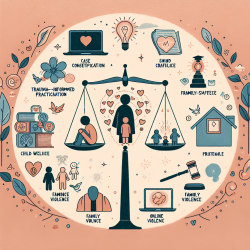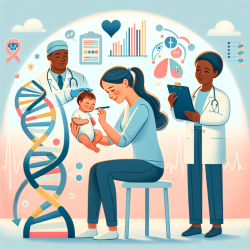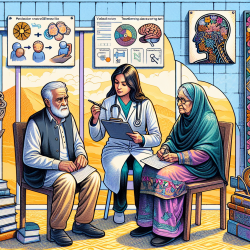Introduction
In the ever-evolving landscape of mental health treatment, particularly for adolescents, innovative approaches are crucial. A recent study titled "Adolescent, parent, and provider attitudes toward a machine learning based clinical decision support system for selecting treatment for youth depression" sheds light on a promising tool: the Clinical Decision Support System for Youth Depression (CDSS-YD). This system leverages machine learning to tailor treatment plans based on individual characteristics, offering a data-driven approach to tackling youth depression.
Understanding the CDSS-YD
The CDSS-YD is a pioneering tool that employs machine learning algorithms to provide personalized treatment recommendations for adolescents with depression. It integrates data from various domains, including clinical and psychosocial factors, to predict treatment outcomes for different interventions like cognitive behavioral therapy (CBT), fluoxetine (FLX), or a combination of both.
Key Findings from the Study
The study involved focus groups with adolescents, parents, and behavioral health providers to assess the acceptability and feasibility of the CDSS-YD. The results were promising:
- Ease of Use: Stakeholders found the CDSS-YD easy to understand and useful for making personalized treatment decisions.
- Trust in Data: Parents and providers appreciated the data-driven nature of the recommendations, which enhanced their trust in the treatment plans.
- Role of Providers: The study highlighted the critical role of providers in facilitating the use of CDSS-YD, emphasizing the importance of their expertise in interpreting and discussing the recommendations with families.
- Barriers to Implementation: The primary barrier identified was clinic productivity metrics, which could hinder the integration of CDSS-YD into practice. Protected time for training and use was seen as a key facilitator.
Implications for Practitioners
For practitioners in the field of speech-language pathology and mental health, the findings of this study offer several takeaways:
- Embrace Data-Driven Tools: Incorporating tools like the CDSS-YD can enhance treatment planning by providing evidence-based recommendations tailored to individual patients.
- Advocate for Systemic Changes: Addressing system-level barriers, such as productivity metrics, is crucial for the successful implementation of innovative tools. Practitioners can advocate for changes that allow for protected time to integrate these tools into practice.
- Foster Collaborative Decision-Making: The CDSS-YD highlights the importance of shared decision-making between providers, patients, and families. Practitioners should engage families in discussions about treatment options, using data to guide these conversations.
Encouraging Further Research
While the study provides valuable insights, it also underscores the need for further research. Larger-scale studies with diverse populations are necessary to validate the CDSS-YD's effectiveness and generalizability. Practitioners are encouraged to participate in or support research efforts that explore the integration of machine learning in mental health treatment.
To read the original research paper, please follow this link: Adolescent, parent, and provider attitudes toward a machine learning based clinical decision support system for selecting treatment for youth depression.










